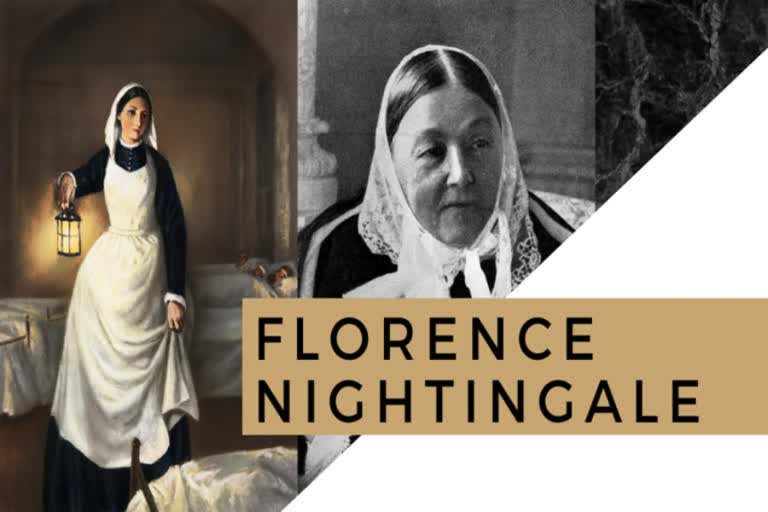Hyderabad: Nightingale was born on May 12, 1860, in Florence, Italy, to the British parents who named her after the city where they had traveled on an extended holiday before and after she was born. Her wealthy upbringing meant that she was expected to marry at a very young age and become a lady of stature, but Nightingale had other aspirations.
She was more interested in helping the ill & poor in the villages surrounding her family’s large estate. By the age of 16, she told her parents that nursing was her calling from God and rejected a marriage proposal and instead set her sights on nursing school. Determined to pursue her true calling despite her parents’ objections, in 1844, Nightingale enrolled as a nursing student at the Lutheran Hospital of Pastor Fliedner in Kaiserwerth, Germany.
Also Read: Remembering Richard Feynman, best known for the theory of quantum electrodynamics
Even though it was not a respected profession at the time, she told her parents that she wanted to become a nurse. Her parents did not approve of her decision and wanted her to get married and raise a family but she still wanted to be a nurse and refused marriage.
Eventually, her father allowed her to go to Germany for three months to study at Pastor Theodore Fliedner’s hospital and school for Lutheran Deaconesses. After finishing her program in Germany, Nightingale went to Paris for extra training with the Sisters of Mercy. By the time she was 33, Nightingale was already making a name for herself in the nursing community and returned to England in 1853 and became the superintendent and manager of a hospital for “gentlewomen” in London.
In the early 1850s, Nightingale returned to London, where she took a nursing job during a Middlesex hospital for ailing governesses. Her performance there so impressed she was promoted to the superintendent within just a year of being hired and the position proved challenging as Nightingale grappled with a cholera outbreak and unsanitary conditions conducive to the rapid spread of the disease.
Nightingale made it her mission to enhance hygiene practices, significantly lowering the death rate at the hospital within the process. The diligence took a toll on her health and she had just barely recovered when the most important challenge of her nursing career presented itself.
When the Crimean War began in 1854, the British were unprepared to deal with the number of sick and injured soldiers due to the lack of medical supplies, overcrowding, and unsanitary conditions caused many people to complain about. Newspapers began to report about the terrible state of medical care at that time. The Secretary of War, Sidney Herbert asked Nightingale to manage a group of nurses that might go treat the wounded soldiers.
